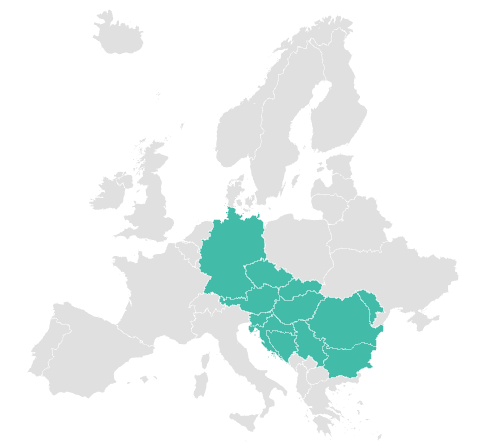|
WE.Circular: A transnational analysis brings out the main issues for a circular and digital transition RAPIV and WE.Circular project partners launched a new Transnational Skills Gaps and Needs Analysis.
It synthesizes the current state of women entrepreneurs in twelve countries in the Danube region and their specific needs for circular and digital transitions. 
Primary motivations for women entrepreneurs from the Danube region to implement circular economy principles into their businesses include expected improvements in operational efficiency and quality, which suggests that many women entrepreneurs view circular technologies as a means to enhance their business processes. Securing a competitive advantage is another significant driver, indicating that entrepreneurs believe adopting circular practices can provide them with a market edge. Pressure from clients and suppliers to modernize also plays a role, highlighting the external influences encouraging businesses to adopt more sustainable practices.
Main barriers to adopting more advanced digital technologies among women entrepreneurs in the Danube region are high investment costs, which suggests that the financial burden of acquiring and implementing new technologies is a major deterrent. This is followed by a lack of skills and knowledge on how to effectively implement these technologies, indicating a need for more educational resources and training programs. Main barriers presented in the Analysis are grouped as follows:
1) Acquiring/ improving skills – development of specialized training programs; prioritize skill development and management training in sectors like agriculture, food, textile and fashion, construction, and energy, where circular economy practices can be most impactful; promote examples of successful women entrepreneurs to inspire and motivate others. Implement awards and recognition programs to boost visibility and motivation.
2) Providing of business support - enhance networking and mentorship; introduce targeted financial mechanisms like grants, preferential loans, and microcredits to help women invest in new technologies and circular business models; ensure that women entrepreneurs have the necessary digital tools and high-speed internet to participate fully in the digital economy.
3) Policy improvement - promote inclusive policies; encourage policies and workplace practices that support flexible work arrangements, helping women balance professional and personal responsibilities; encourage government and private sector collaboration; Increase efforts to spread awareness of circular economy benefits, provide accessible education, and ensure that resources are available to help women entrepreneurs seize new opportunities. Promoting sustainability as a key business topic to ensure broader acceptance and the need for specialized software to manage sustainability data efficiently.
Read more about the Transnational Skills Gaps and Needs Analysis and get insights from 12 countries analysis in the section "Publications/ Analyses and Strategic Documents", as well as on WE.Circular project webpage. |
 |
 |
 |
 |
REGIONAL AGENCY FOR ENTREPRENEURSHIP AND INNOVATIONS – VARNA (RAPIV) |
Varna, Bulgaria tel.: +359 882 809 178 +359 52 802 163 office@rapiv.org |
2025, All rights reserved. Terms of Use / Privacy Policy

-00793.png&fltr[]=wmi|/share/images/site/water1.png|BR|60)